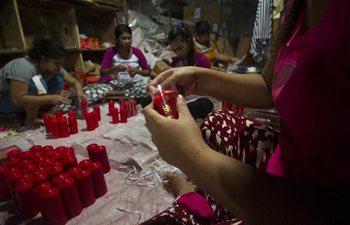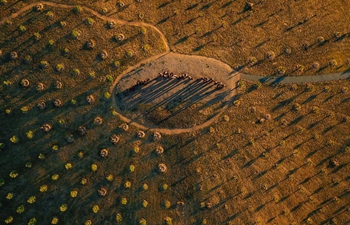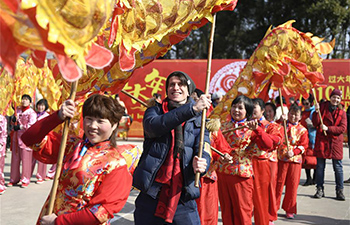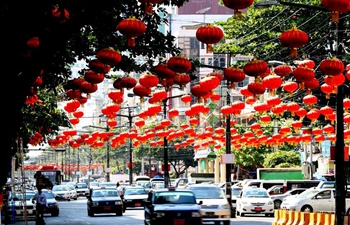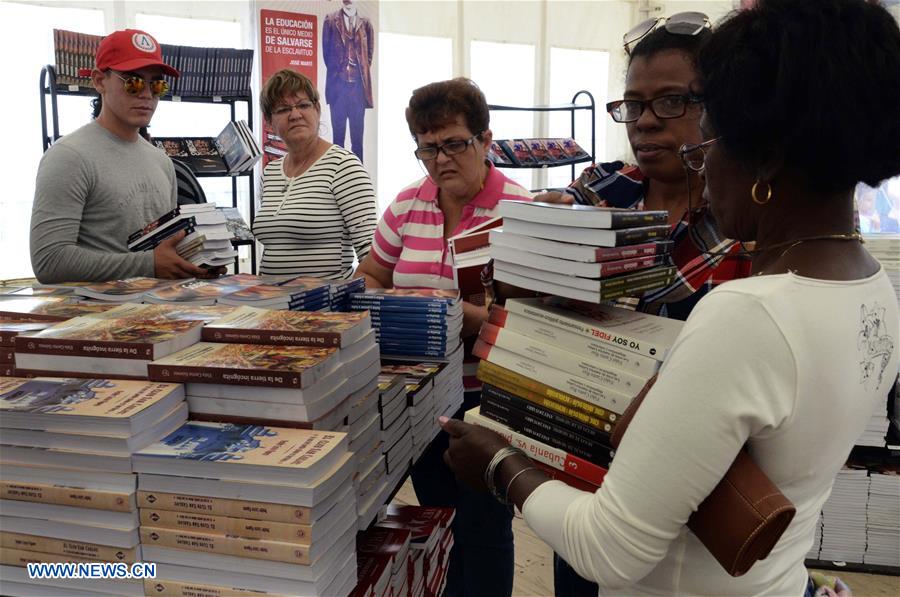 ?
?People select books on the Cuba's International Book Fair in Havana, Cuba, Feb. 2, 2018. Cuba's International Book Fair 2018 opened here Thursday amid drumroll with China as this year's guest country. (Xinhua/Joaquin Hernandez)
by Raul Menchaca
HAVANA, Feb. 3 (Xinhua) -- Havana's 27th International Book Fair, which features China as a guest country, Saturday paid homage to "Kwong Wah Po," a Chinese-language newspaper catering to the local Chinese community.
"It's a publication that represents the interests of the Chinese immigrant community in Cuba," Maria Teresa Montes de Oca Choi, a professor who leads studies on China's migrants in Cuba, told Xinhua.
"It presents the cultural, political and active life of these migrants within Cuban society," Montes de Oca said.
A martial arts presentation by students from the Cuban Wushu School kicked off the ceremony in honor of the newspaper, which this year marks its 90th anniversary.
A special edition spotlights the contribution that China's migrants have made to Cuban culture since 1847, when the first 200 workers, or coolies, arrived in search of a better life.
Following the Japanese aggression against China in 1937, the newspaper changed its name to "Salvation of the Homeland," and became a monthly publication due to rising costs. Shortly after, it closed.
The following year, a Chinese daily printed in the United States, "Wah Kiu," donated equipment and printing machinery to get the enterprise going again, this time from Santiago de Cuba, a city located on the easternmost tip of the island country.
It was not until 1944 that the publication adopted its current name, though its criticism of Chinese leader Chiang Kai-shek's government following the end of World War II led the Cuban government to crack down on it, and the daily went underground.
After the 1959 Cuban Revolution, the publication was gradually revived. Today it is a four-page tabloid that includes a page in Spanish.
The newspaper is now sponsored by the local Chinese Center of Art and Traditions and the Chung Wah Casino Federation.
Some 600 copies are printed monthly with news on national and international events, and features that promote Cuba-China ties and friendship.
"The fraternal ties go beyond any trade agreement or cultural accord. They are above all, because the cultural symbiosis and fraternity that developed between the Chinese and Cubans was fed by the blood of our liberators and that remains," said Montes de Oca.
The special edition of the publication is being featured at the fair alongside some 300 Chinese book titles by leading authors.
The fair runs through Feb. 11 in Havana, before touring the country and concluding in Santiago de Cuba in May.




